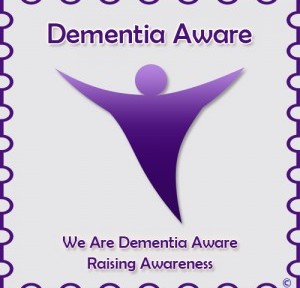Summary: The recent paradigm for the treatment of cognitive impairment has shifted to non pharmacological interventions such as exercise. Some results published recently have shown a positive role of exercise in preventing cognitive decline. The common message of all these studies involving different population and different cultures is that exercise is beneficial in preventing the cognitive decline. In the future, evidence based exercise therapy can be introduced by developing a thorough systematic exercise protocol and integrating it with molecular profiling of the underlying cellular and molecular changes induced by the exercise protocol.
Cognitive impairment is one of the major public health problem faced by the modern society affecting primarily the elderly population. It can have many possible causes such as metabolic and endocrine dysfunction, medicinal side effects, depression and Alzheimer’s disease. While there are some medications that are used as cognitive enhancers, no known medication that could prevent or treat the cognitive decline have been developed yet. Developing a drug that could prevent or treat cognitive decline is a challenging prospect. Therefore, more efforts have been put into conventional or non pharmacological interventions such as diet and exercise. Assessing the current studies, the results are encouraging and in the near future we could be up for some type of exercise therapy for the prevention/treatment of cognitive impairment. Here, I am trying to summarize some of the studies related to exercise and cognition published in 2017. The common message of all these studies involving different population and cultures is that exercise is beneficial in preventing cognitive decline.
A systematic review published in the British Journal of Sports Medicine showed that physical exercise improves cognitive function in the elderly. This meta analyses took into the account 39 different studies till November 2016. The study looked into several different types of aerobic exercise, such as resistance training , multicomponent training and tai chi (Chinese martial art), and found that moderate intensity aerobic exercise decreases the cognitive decline in patients older than 50 years irrespective of their cognitive status.
Similar result was obtained in another study published by Piedra et al. in the Journal of Alzheimer’s Disease. The study investigated the effects of exercise intervention on cognitive function in the elderly latinos/hispanic population (older than 60 years). The participants were examined for their cognitive function(baseline) before initiating the exercise intervention program. Then, following the exercise intervention program, the cognitive function was again measured after 1 year and 2 year periods. The results showed that participants involved in the exercise intervention program had higher cognitive function scores after 1 year and 2 year follow ups as compared to their initial baseline scores.
Not only is exercise beneficial to the elderly people. It is also beneficial to the adults of any age suffering from chronic diseases. The study published by Cai et al. in Clinical Interventions in Aging have found that exercise is beneficial in preventing the cognitive decline in the adults (older than 18 years) with chronic disease. This metaanalyses and systematic review took into account 36 different studies till September 2016. The studied participants were diagnosed with chronic diseases such as arthritis, asthma, cancer, COPD, diabetes, heart disease, or AIDS. This study found that exercise is beneficial in improving the cognitive function of patient suffering from chronic disease irrespective of the type of clinical disease, type of exercise, frequency, and intensity of the exercise intervention.
These are some of the recently published studies related to exercise and cognition in 2017. The results of these studies clearly showed that exercise could potentially act as a non pharmacological therapy in preventing cognitive decline. However, development of a systematic exercise protocol supported by molecular profiling of underlying exercise induced changes could be of immense help in establishing evidence based exercise therapy.
Particularly,in regards to exercise, the rule of thumb is any amount of physical activity is beneficial and as the above studies suggest, it is beneficial to prevent/slow the cognitive decline as well.
References:
Northey JM, Cherbuin N, Pumpa KL, Smee DJ, Rattray B. Exercise interventions for cognitive function in adults older than 50: a systematic review with meta-analysis. Br J Sports Med. 2017 Apr 24. pii: bjsports-2016-096587. doi: 10.1136/bjsports-2016-096587. [Epub ahead of print] Review.
Piedra LM, Andrade FC, Hernandez R, Boughton SW, Trejo L, Sarkisian CA. The Influence of Exercise on Cognitive Function in Older Hispanic/Latino Adults: Results From the “¡Caminemos!” Study. Gerontologist. 2017 Mar 15. doi: 10.1093/geront/gnw256. [Epub ahead of print]
Cai H, Li G, Hua S, Liu Y, Chen L. Effect of exercise on cognitive function in chronic disease patients: a meta-analysis and systematic review of randomized controlled trials.Clin Interv Aging. 2017 May 11;12:773-783. doi: 10.2147/CIA.S135700. eCollection 2017. Review.
For any feedback and comments, feel free to contact me.






